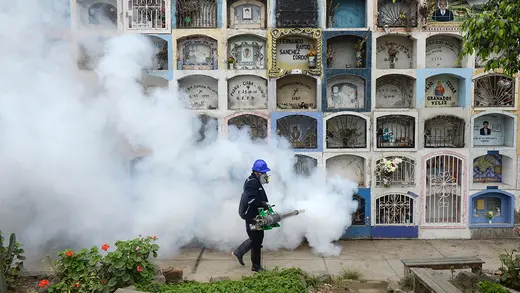How does the WHO fight global health emergencies?
Under the International Health Regulations (IHR), a legally binding framework drawn up in 2005 to prevent and mitigate health emergencies, WHO member states are required to monitor and report potential crises. Countries have historically been hesitant to report outbreaks, often because they’re fearful of economic repercussions. In 2003, for example, China denied for months that it was suffering an outbreak of the infectious disease that was eventually identified as SARS. Before the WHO declared China free of SARS in 2004, the disease killed more than three hundred people. In Ethiopia, Tedros himself was accused of downplaying cholera outbreaks while he was the country’s health minister; he denied these claims.
In an extraordinary crisis, the WHO can declare a public health emergency of international concern (PHEIC), which it has done six times: during the 2009 swine flu (H1N1) epidemic; in reaction to a reversal of progress in eradicating polio in 2014; amid the 2014 Ebola outbreak in West Africa; during the 2016 Zika virus outbreak in the Americas; once the ongoing Ebola epidemic reached the city of Goma in the Democratic Republic of Congo in 2019; and amid the global outbreak of the new coronavirus in 2020.
Order Now
